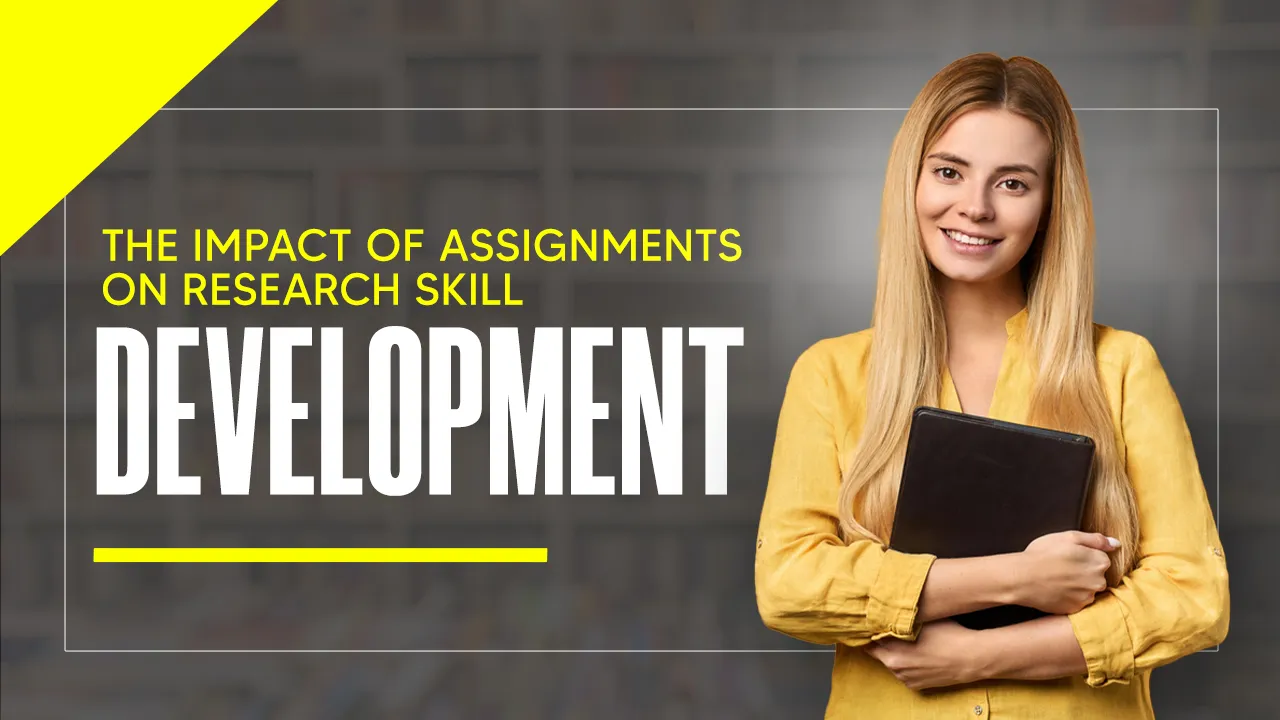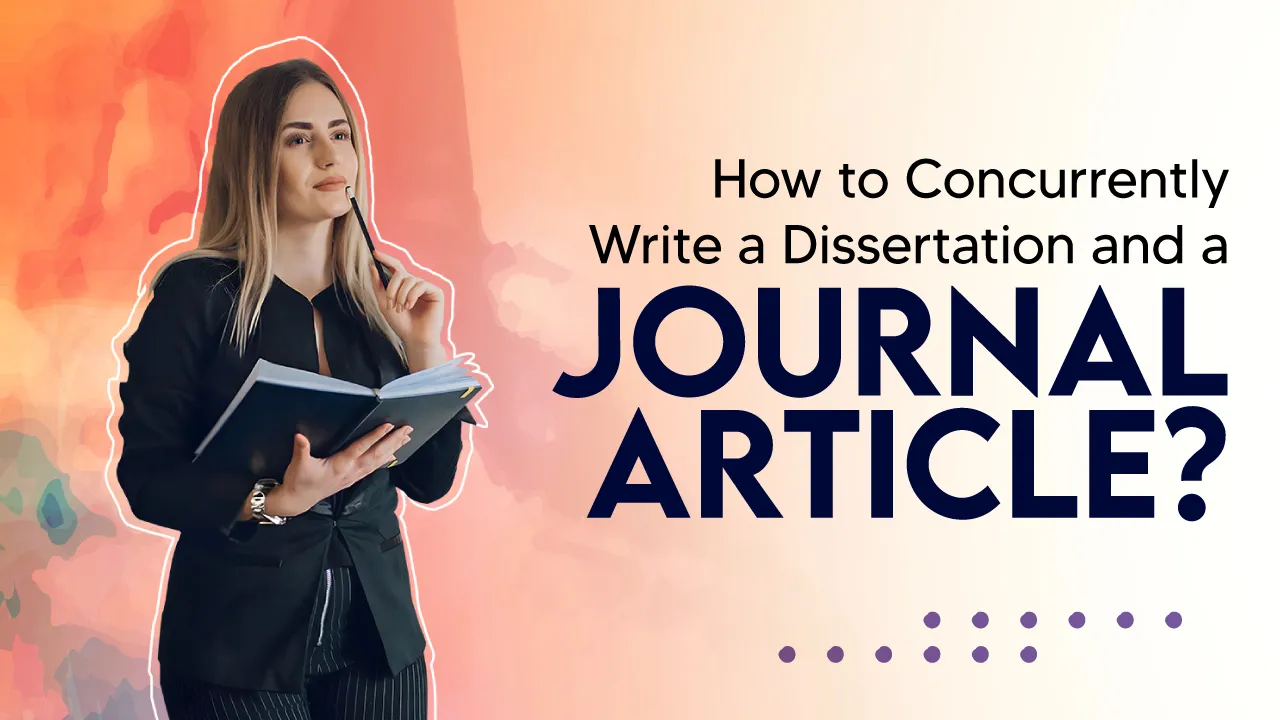How Can AI Improve the Quality of Your Dissertation Literature Review?

Contents
Introduction
Being a graduate student entails dissertation writing, which involves various research organisation methods and steps. One important early chapter in the dissertation is the literature review, which offers an overview of the field of study. It entails summarising pertinent research papers and other materials with specific references.
To effectively write a literature review, it is crucial to understand its purpose. The primary objectives of a literature review are to contextualise your dissertation topic outline within existing work, acknowledge prior contributions, avoid plagiarism accusations, and demonstrate your unique contribution to the field.
Despite its repetitive nature, many students need help with the literature review. While traditional tools and techniques are available, they often need to be more convenient and rely heavily on keywords. In this blog post, we will learn how you can accelerate your dissertation literature review with AI.

Purpose of Literature Review in Dissertation Writing
The literature review plays a crucial role in dissertation writing by providing a comprehensive overview of existing scholarly research and knowledge relevant to the research topic. Let us understand the purpose of the literature review using three different points:
1. Demonstrating Knowledge
A literature review showcases the researcher's understanding of the existing body of work related to the research area. It highlights the key theories, concepts, methodologies, and findings that have shaped the field, demonstrating the researcher's familiarity with the topic.
2. Identifying Gaps
The review identifies gaps or unanswered questions by critically analysing existing literature. Dissertation help in writing the literature review helps the researcher identify their study's unique contribution and how it will fill those gaps.
3. Informing Research Design
The literature review guides the research design and methodology by helping the researcher identify appropriate research methods, instruments, and data sources. It also provides a theoretical framework for interpreting the findings and contextualising the research within existing knowledge.
Overall, the literature review is essential for establishing the rationale and significance of the research, demonstrating the researcher's expertise, and ensuring the study's relevance within the broader academic discourse.

Methods Through That AI Can Aid You Throughout This Process
1. AI-Powered Search and Retrieval
AI dissertation writing and technology can revolutionise how researchers search and retrieve relevant academic papers. With AI-powered search engines and databases, you can quickly access a vast amount of scholarly literature related to your research topic.
These systems utilise natural language processing algorithms and machine learning techniques to understand your search queries, match them with relevant documents, and present you with tailored results. This capability significantly speeds up identifying relevant sources, saving countless hours of manual searching.
2. Automated Literature Screening
One of the most time-consuming aspects of the literature review process is screening and filtering numerous articles to identify the ones that align with your research objectives. AI-based tools can automate this process by analysing abstracts, titles, and keywords to determine the relevance of each article.
These tools use machine learning algorithms to learn from your feedback, gradually improving their accuracy in identifying relevant literature. By automating the screening process, AI allows you to focus on reviewing the most pertinent articles, thereby increasing efficiency.
3. Content Summarisation and Extraction
Reading and comprehending numerous research papers can be overwhelming. AI can assist in this area by providing content summarisation and extraction capabilities.
Natural language processing techniques enable AI algorithms to extract key information from scholarly articles, such as research objectives, methodologies, findings, and conclusions.
This feature empowers you to quickly grasp the essence of a paper without having to read it in its entirety. By condensing the information, AI enables you to process more literature effectively.
4. Citation Management and Analysis
Maintaining accurate and comprehensive citations is essential for any research project. AI-powered citation management tools simplify this process by automating the generation and organisation of references. These tools can extract citation information from academic papers and create properly formatted citations according to the required citation style.
Furthermore, AI can analyse citation networks to identify influential papers and researchers in your field, helping you better understand the scholarly landscape and identify potential collaborators or key references for your dissertation.
5. Plagiarism Detection
Maintaining academic integrity is of utmost importance in any research endeavour. AI-based plagiarism detection tools can help ensure your literature review is original and free from unintentional or accidental plagiarism.
These tools compare your work with a vast database of scholarly articles, detecting similarities and flagging any potential instances of plagiarism. By utilising AI-powered plagiarism detection, you can confidently present your dissertation with the assurance that your work is authentic and respects intellectual property rights.

Frequently Asked Questions (FAQ's)
1. How to Write a Literature Review for a Dissertation Through AI?
Writing a literature review for a dissertation using AI involves initial topic exploration. AI tools such as ChatGPT assist in evaluating all the relevant sections of the dissertation like literature, structuring, and many more. Critical evaluation of sources is very essential for a comprehensive literature review.
2. Can an AI Do a Literature Review?
AI tools such as ChatGPT aid in a literature review by automating data. In that case, human oversight is said to be very crucial for ensuring the quality of sources. Collaborative efforts between AI and researchers help in enhancing the efficiency of the process of literature review in academic research.
3. Can I write a Literature Review for My Dissertation?
Of course, you can do a literature review for your dissertation. Make sure that you start the process by defining your research questions, then collect all the relevant sources. Ensure to evaluate these sources so that you can identify gaps that can be explored.
4. Can I Use AI to Write My Research Paper?
AI tools such as ChatGPT assist in producing the content. It is very important to do this exercise with great care when using it for research papers. Make sure that you have maintained control over the writing process. Always use AI as a supplementary tool for writing.
5. How to use AI in Literature?
AI is employed in literature for various tasks. It is generally related to the analysis of the automated text, characters, and many more. It acts as a very good tool for scholars in evaluating large literature. It is said to be a very firm tool.
Conclusion
Artificial Intelligence has revolutionised various aspects of the research process, including the dissertation literature review. By harnessing the power of AI tools and techniques, researchers can expedite the literature review process, save valuable time, and enhance overall efficiency.
Integrating AI into your dissertation journey can be a transformative experience, enabling you to achieve more within a shorter timeframe while upholding the integrity and rigour of your research. Simply put, an AI-powered research assistant can scan the vast scientific literature to address your specific queries.
You can always expect relevant results, whether you have a narrow question or a broader topic. And if you encounter a task requiring specialised assistance, you can turn to a professional dissertation writer or assignment writing services. These services offer unique content at affordable prices. Good luck with writing your literature review!
Your email address will not be published. Required fields are marked *
20% OFF!




Wow, I'm truly impressed by how seamlessly the writer integrates AI technology into the literature review process. It's a brilliant way to enhance the quality and efficiency of dissertation writing!
The writer's use of AI-powered literature review in dissertation writing is nothing short of groundbreaking. It's amazing to see how technology can revolutionize the research process and produce more thorough and insightful results.
I'm thoroughly impressed by the writer's use of AI in their literature review. It's clear that they are at the forefront of harnessing technology to streamline the research process and produce more rigorous and comprehensive dissertations.
The writer's integration of AI technology into their literature review process is both impressive and inspiring. It's exciting to see how AI can be leveraged to enhance the quality and depth of academic research.
I'm blown away by the writer's use of AI-powered literature review in their dissertation writing. It's a prime example of how embracing technology can lead to more efficient and insightful research outcomes.